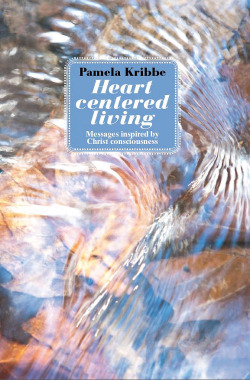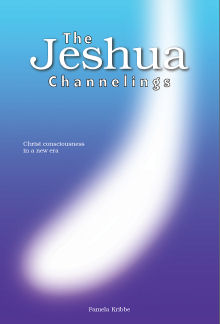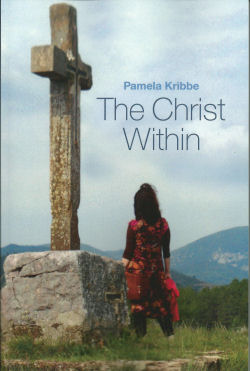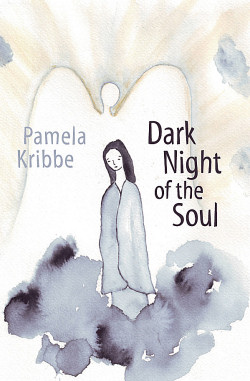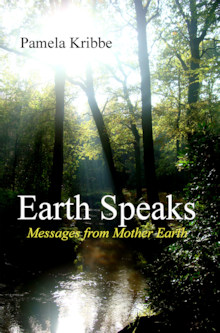A spiritual perspective on aging
by Gerrit Gielen
If you accept what the newspapers say about getting old, it would seem to be the worst thing that can happen to a human being. And for society at large, an aging population is perceived to be a disaster. Crowded nursing homes, unaffordable health care, dementia, and general deterioration are what we have come to associate with growing old.
Every one of us is getting older. With every second that elapses, we lose a bit of our youth. It is a natural process to which all living creatures are subject. How can it be that we have come to loathe a process so natural? Is there something wrong with nature? Or is there something wrong with us, with our way of thinking about aging?
How do old people themselves actually feel about that “dreaded” old age? Scientific research that measures happiness relative to age shows a U-shaped curve. Young and old people are the happiest. During mid-life it is more likely that you are unhappy than in your youth. Research shows that old people are even somewhat happier than young people!1 How is this possible? How can it be that, although aging is associated with so many problems, people usually start feeling happier anyway? Let’s examine the life cycle of a human being from a spiritual perspective.
Birth: the loss of ourselves
From a spiritual viewpoint, to be born is to take a dive into matter. We leave the realm of the soul, an atmosphere of joy and peace. In the realm of the soul, the restrictions of time and space, and the sense of separation that we experience on earth, do not exist. Freedom is a natural given. Moreover, everything around us radiates beauty, love, and harmony; fear and suffering are absent. Nonetheless, at some point we accept the invitation from mother Earth to be born as a human being. With every birth we begin a long process of descending into, and connecting with, the physical atmosphere. In ancient literature, the birth of the incarnated soul is called “the fettering of the soul”. The soul lands into the restrictive, dense realm of matter, in which each being seems separate from another. The soul has trouble holding on to its natural vibration in this atmosphere; it does not belong here, and it can survive only by withdrawing regularly. This withdrawal is what we call sleep, and it is essential not merely to our body, but to our spirit.
Although birth marks the beginning of a new incarnation, the process of the soul’s descent is then still far from over. A further descent continues until around the age of forty. Around that time, the dive into matter has reached its peak: as an adult you fully inhabit the realm of matter and human society. From the perspective of your soul, you are now the farthest removed from your source, the heavenly realm you come from. At the deepest point of incarnation, the distance to your origin is the greatest. During childhood, the bond with the original sphere of the soul is still strong. Children are often intuitive, spontaneously joyful, and totally absorbed in the moment; these qualities are natural to the soul. To enjoy and explore life in a playful and uninhibited way is natural for the child, as well as for the soul. Unfortunately, our society has become dominated by a twisted, masculine notion of spirituality that does not recognize these qualities as spiritual, but rather regards them as signs of immaturity. This heavy and serious portrayal of spirituality is not actually derived from original Christianity. In the Bible, there are still traces of the soul’s perspective. In Mark 10:14, for example, Jeshua says: “Let the children come to me, do not hinder them; for to such belongs the kingdom of God.”
Puberty: the descent downward
Before adulthood arrives there is the transitional phase of puberty, followed by young adulthood. Consciousness descends deeper into the material atmosphere; the distance from our Source becomes greater. The natural happiness and self-confidence from childhood is lost. Doubts and fears emerge; nothing is taken for granted anymore. There will be rebellion and uncertainty. The resistance usually focuses on the surroundings: the parents, the school, or society in general – all of these are often under critical scrutiny. Unconsciously, they get the blame for the loss that is felt by the teenager and young adult. But essentially, their rebellion is directed against the inner development: the deeper descent into the earthly realm and a further cutting loose from the Source.
In the realm of the soul, having a unique place within the whole is a natural given. You do not doubt your right to exist and you intuitively sense what your role is in the grander scheme of things. The knowledge that the cosmos is not complete without you, that you are an integral part of the greater whole, makes one feel safe and cared for. At puberty, this realization gets lost and this results in an identity crisis. This crisis may be so overwhelming that young people become addicted to drugs or alcohol, and in some cases even commit suicide. Such acts of despair often originate from a deep desire to restore the connection with the soul.
Fortunately, however, resistance is not the only characteristic of this period. Puberty and adolescence are also a time when many aspects of earthly life are explored with zest and curiosity. We may become interested in nature, music, literature, or explore new and provocative intellectual ideas. Interest in others increases: we fall in love for the first time. Perhaps most importantly, we start to feel our own originality, our individuality. Every soul is unique and takes its own seeds to the earth, seeds that germinate during childhood and emerge above ground during adolescence. Often, during this phase in life, original thoughts and feelings surface that will have a lasting impact on your future and will take definite shape in adulthood.
If all goes well, the loss of childhood coincides with a period of rediscovery of who you are, independent of your parents and upbringing. That rediscovery ensures that, in the long term, the rebellion subsides, and the current of Life will take you to new and exciting places. The most valuable gift you can give to someone as they go through puberty and young adulthood is trust. Be confident that there is a path and place for them in this confusing world no matter how “different” they are, no matter their seeming inability to fit in. It is precisely their originality, their individuality, that the world needs and that holds their unique soul’s contribution.
Adulthood: the low point of our lives
Adulthood, the physical high point of life, is from a spiritual perspective the low point of life. The distance to the realm of the soul – from our own soul – is now at its greatest. We are now the farthest away from our spiritual origin. We are fully immersed in the material realm and we have become identified with our human personality and our achievements. During this phase, humans are on average the unhappiest. The physical world with its laws and restrictions is now experienced as the only reality. A lot of concern turns to money and property, to social status and hard work. This fixation causes people to forget themselves even more. The identification with the material realm in adulthood is often so strong that one tends to feel that this is all there is, and that life revolves around these issues. There may be spiritual beliefs present, but often these are derived from the traditional religions which are largely based on fear and dogma. The traditional religions have a distorted image of spirituality and they often do more harm than good. The most important thing that an adult can accomplish from a spiritual perspective is to cherish the seeds he or she carried to earth as a soul, and to let them grow into beautiful flowers. This is our real mission, and one that can only be fulfilled by remaining true to oneself, by not letting oneself be dragged along by the pressures and rules of society.
Quite often, this mission fails. In adulthood, the ideals of adolescence and puberty, and the desires and dreams of childhood, are often regarded as unfeasible and naive. After all, they do not fit with in what society seems to expect and considers realistic. Authentic ways of self expression that are still there may be labeled selfish, irresponsible, or even insane. “Act normal, behave like a responsible adult.” We have to fit within the social mold or else we do not belong. Work 40 hours a week and take three weeks of holidays a year. I remember the sadness I felt the day I entered kindergarten. At the age of four, I could already sense what was planned ahead for me: years and years of school and then work. I was wondering when I would be free again. At the end of primary school, I was asked during a test what I wanted to be later in life and my answer was “rentier”. I just wanted to be free again; I did not want to be forced into a system that told me what to do and what not to do.
Fortunately, during my adult life I managed to find a comfortable part-time job which allowed me to work no more than three days a week. Other people thought it was peculiar that I, as a grown man, had no career and little ambition, and preferred to wander through nature, read books, and have philosophical conversations with my friends. Not until I was in my forties did I realize that it was acceptable and even practicable to be this different. I turned my hobbies (thinking about philosophy and spirituality, practicing hypnotherapy) into work. Eventually, I let go of my part time job. I discovered that I could be free, do the things I really liked and make a living doing it. The key was trust: having faith in the original and unique gifts my soul carried within and trusting that Earth would welcome me and reward me for sharing these gifts. With that realization, I started the way “up”, the way back to my spiritual nature.
Aging: the way “up” again
When we grow older, we begin the way “up” again, back to the soul. The low point of being fully incarnated in, and identified with, the material realm is over. We can let go of this one sided focus and we are often spurred on to do so by the life challenges we meet, or by being confronted with the increasing frailty of our bodies. We are going back “up” again to eventually return to the Source. The natural movement of aging is growth toward the light, identifying with the greater reality of your soul rather than the finite and limited reality of your body and personality. Therefore, from a spiritual point of view, you become more rather than less when you age: wisdom, trust, and joy are more likely to increase.
A human being who ages naturally and gracefully is aware that they are much more than their earthly self. They realize that their true self rises above the roles they have played in the material realm of Earth. As the hold of this reality diminishes, they start to realize again who they really are: an eternal being of living light.
Unfortunately, this natural and graceful process is often hampered by deeply ingrained social beliefs. We live in a society which, by and large, believes that physical reality is all there is, that there is no true self beyond the earthly self, and therefore getting old is a bad thing. People have become completely identified with their physical body and personality. Getting old is associated with loss and decay, with a movement toward nothingness. Many people therefore oppose the very process of aging and this resistance interrupts the natural ascension toward the soul and toward more joy and light. Resisting the aging process creates a self fulfilling prophecy: what you fear becomes true because you fear it. The resistance causes one to cling to the physical dimension and to the body. This clinging is a denial and a turning away from your inner light, and it has a number of tragic consequences for the aging human.
– First, the aging body could benefit tremendously from a more deeply felt connection with the soul. As a person connects with the realm of the soul during the aging process, the energy from the spiritual realm flows more strongly through their body. The body is uplifted and revitalized by the light and joy from this realm and it gains extra strength and health from it. The ailments of old age have less of an effect on it. But if consciousness does not focus on what lies beyond the earthly, and desperately clings to the physical, the body will have to do without this additional energy. This increases the risk of health problems.
– Second, in society at large, older people could fulfill an important role: radiating spiritual awareness and wisdom to younger generations who are focused on the physical realm and the demands of society. Older people can, through their life experience and their increasing connection with the dimension of the soul, have a positive influence on younger people by sharing their light, their insight, and their compassion. They can offer a wider perspective on things and listen with patience. By nature, everyone senses in older people more wisdom, peace, and serenity.
The positive influence of older people can be expressed in various ways: from an influential spiritual personality to a sweet wise grandma to whom the whole family turns for advice. Also, there are writers, artists, and therapists who, at a very advanced age, are doing exceptional work and unknowingly inspire many other people. Older people are the bridge between the realm of the timeless and the practical world of everyday life. A society in which the value of old age is not recognized is a society that has lost the connection with the spiritual. We then see a society running amuck: look around you.
When the aging human cannot take up their natural place in society, both society and the elders themselves suffer. The life of an elder tends to become lonely, small, and boring. Is it not tragic that right at the age when a human being is ideally suited for spiritual work, they are relegated to the sidelines. Ever heard of a writer or artist who quit on his sixty-fifth birthday? Just imagine how many great books and works of art we would be without if these people had to hold to the insane rule to stop working at the age of sixty-five? At this moment, I am reading the memoirs of Claude Lanzmann, born in 1925, maker of the film Shoah2. On every page, I am amazed and touched by the scholarship, wisdom, and richness of this book. According to the standards of our society, this man would have had to retire more than twenty years earlier and do nothing! Absurd. Older people are being made small and make themselves small: physical and mental degeneration are the result.
Aging: five suggestions to lighten the way
In order to find a natural, graceful way to grow old in our society, which holds such negative pictures about old age, a radical change in thinking is required. Here are some suggestions.
Forget all that society tells you about aging and being old
Society’s view of aging is not a spiritual one. It does not regard human beings as carriers of a timeless soul, but as physical organisms that gradually break down and become useless. But every human being who experiences life with an open heart and an open mind will conclude that there is more to life than this. Life has a spiritual dimension, and this dimension is actually far more fundamental than the physical one. As an elder, you can connect more easily with that dimension and derive inspiration and strength from it.
Realize that nothing is ever lost
Nothing and no one gets “lost in the night”; everything of value remains. One of the first things we find out after we die and have access to the other side, is that everything is still there. Our family members and dear friends, the world of our childhood, our most cherished experiences – everything is still there. And we can connect with our loved ones or relive some experiences if we so choose – it is all there for us. By going along with the flow of life, and surrendering to the aging process, we reach out to this timeless dimension where everything of real substance is preserved. If we dare to let go, we can receive glimpses of this dimension. We then come to realize on the inner level that nothing is lost – and this inner knowing brings peace and equanimity.
Go out into the world. This is the time to let your light shine. It will serve society and your fellow human beings.Younger people often don’t understand the elderly. How can they be so accepting, peaceful, and happy while they are confronted daily with loss of health and abilities, and with death approaching? The answer is that the elderly have an inner knowing that young people do not have. Older people are usually marked and ripened by life experiences that have made them milder and more thoughtful than the average young person. An older person has had to let go and surrender more often. From this grows an equanimity that brings peace and happiness. The elderly would do an immense service to society and their (younger) fellow humans if they would be aware of their gifts and share them. Take an honest look at what the world needs today: new phones, faster cars? No: wisdom, calm, and peacefulness. Isn’t that what the elderly have to offer?
See the relativity of the roles people play. Do not take these so seriously.
Life is a game. People (read: adults) who are completely engaged in the game take their role very seriously. Don’t let yourself be carried away too much by the game; maintain some distance. See through it; observe the players play their parts. To see human society as a game that people play makes it is easier to let go of the standards and expectations involved. It makes it easier to let go of the roles that you used to play – as a parent, employer, or employee, etcetera – and to open up to a new chapter in your life.
Put your trust in life. Trust that life will bring new experiences to you, new roles even that fit the person you are now, not the person who you were. By letting go of the past and by surrendering, you open up to the new, and you may discover different sides of yourself. If you hold on to something that no longer fits you, a feeling of emptiness and loss will arise. Trust life and let go.
No longer identify with your body and the physical world, but with your consciousness.
Identifying with your role in the physical and social world is fun and interesting as long as you realize it is a game. For a while, you are completely absorbed in it and then you let go again. In that way, you go through a whole range of experiences and your soul is enriched by that. It is natural during a certain period of your life to identify with the roles you play, but it is also natural to feel at some point that it is time to let go and to realize who you are beyond that role. This is supposed to happen as you get older.
Imagine that you are driving a car. If you think you are the car, it will be terrible when something happens to it. If you realize you are the driver, it is not so bad: you know you are not the car and you can just step out of it.
Go stand in front of the mirror and look at your reflection: see how your face is getting older. But behind your face, your eyes, is something that does not age and is timeless: your consciousness. Feel it. By identifying with your consciousness, and not with your aging body, you go along with the natural flow of aging. The connection with who your truly are, with the dimension of your soul deepens. This awareness makes you shine with wisdom and peace.
The blessings of old age
There is nothing wrong with an aging population. To start with, older people are on average happier people, so an aging population means that society as a whole will be more contented.
The proportional rise in the aging population also means an end to the disastrous population explosion which has caused the demise of so many animals and plant species. We are heading for a future with fewer people on Earth and therefore humanity and nature will be more in equilibrium.
As a result of the growing number of older people, it will be impossible to ignore and belittle them. Society will be forced to give elderly people their rightful place. And the elderly themselves will be challenged to enter that place. The absurd logic will be put to an end which makes people who, from a spiritual viewpoint, are at their most fertile age retreat from society. This means that older people will no longer hide, but allow their light to radiate.
Older people will bring wisdom, peace, and tranquility to society. Humankind has gone astray and is in dire need of connection with the timeless reality of the soul. A society, which takes seriously the natural blessings and gifts of old age, will be a society that focuses on harmony between human beings and harmony with mother Earth, instead of the pursuit of success and exploitation of our planet. It will also be a society in which there is less fear of death and of old age. Growing older will be perceived as a graceful process and as a gradual return to the source of Light we all come from.
© Gerrit Gielen
Translation by Maria Baes, Frank Tehan and Pamela Kribbe
1) Helliwell, J.F., Putnam, R.D.(2004) The Social Context of Well-Being. Philosophical Transactions: Biological Sciences. Vol. 359, No. 1449, pp. 1435-1446
2) Claude Lanzmann – The Patagonian Hare: A Memoir

